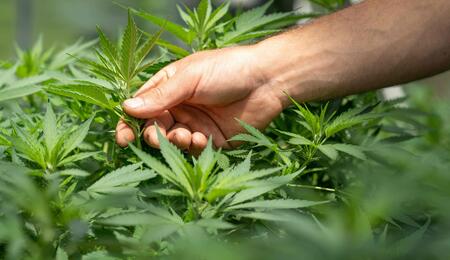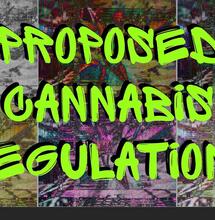Cannabis Quality Control: How to Protect Consumers

Regulating cannabis is not just a political choice, but a public health necessity. Ensuring quality and safety means protecting millions of consumers from an uncontrolled underground market.
Cannabis policies are currently experiencing massive transformation. More and more countries are moving beyond the prohibitionist approach in favour of regulation based on scientific data, health protection and social responsibility. At the heart of this change is a priority objective: ensuring the quality and safety of cannabis-based products to protect consumers.
Consumer protection comes first.
The reality is simple: cannabis is consumed, in a widespread and transversal way. Pretending otherwise or continuing to relegate it to the realm of illegality does not stop the phenomenon, but increases its risks. In the absence of regulation, consumers do so blindly, without any guarantee of the origin or composition of the product. A legal and controlled system, on the other hand, allows us to offer cannabis free of contaminants, with transparent labels and clear dosages, limiting damage and promoting conscious use.
Clear rules for a modern market
Legalisation accompanied by regulation is not synonymous with promoting consumption but with modernity. It means acknowledging reality and choosing to manage it with effective tools. A serious regulatory system defines precise criteria for cultivation, processing, distribution and sale. It imposes limits on the concentration of cannabinoids, prohibits the use of harmful substances and requires traceability along the entire supply chain.
Laboratories and controls: science at the service of health
Laboratory tests are a central element in guaranteeing a safe product. In addition to certifying the levels of THC and CBD, they allow us to detect the presence of pesticides, heavy metals, mould or chemical residues. In a regulated market, only products that pass these tests can be placed on the market, drastically reducing the risk of side effects due to contamination. This is a fundamental step in protecting the consumer's right to know what they are taking.
Toxic substances on the black market: an invisible danger
In the illicit market, where there is no form of control, cannabis can contain a wide range of toxic substances. These substances include unauthorised pesticides, chemical fertilizers, dangerous moulds and heavy metals absorbed from the soil like lead, arsenic, and cadmium. This is also alongside residues of dangerous solvents. Inhaling these contaminants, especially through combustion, can cause serious damage to health: lung infections, allergic reactions, neurological and respiratory damage, to carcinogenic effects. A regulated and guaranteed market prevents the circulation of these contaminated products because each batch must pass strict tests before being sold. It is not just about legalizing, but about concretely protecting those who consume.
Responsibility and transparency in production
The creation of shared production standards, the obligation of detailed labelling and the training of operators are the pillars of a market that puts safety at the centre. A modern approach to cannabis cannot ignore a responsible industrial vision, capable of combining freedom and protection.
The dangers of an illegal and out-of-control market
Continuing to keep cannabis outside of any regulation fuels an illegal circuit in which quality is non-existent and the risk is maximum. Consumers often find themselves buying counterfeit, altered or potentially dangerous products, without any possibility of verifying what they are using. This is where prohibition-ism shows its limits: rather than protecting, it exposes to greater dangers, especially the youngest and the vulnerable.
Regulating the cannabis market is a responsible decision. It means recognizing that there is a stable demand and responding with a safe, transparent and controlled supply. Replacing prohibition with regulation is the only way to protect consumers, reduce harm, and bring light to an industry that has been left in the hands of illegality for too long. From a modern public health perspective, this is a challenge we can no longer postpone.
More From soft Secrets:





